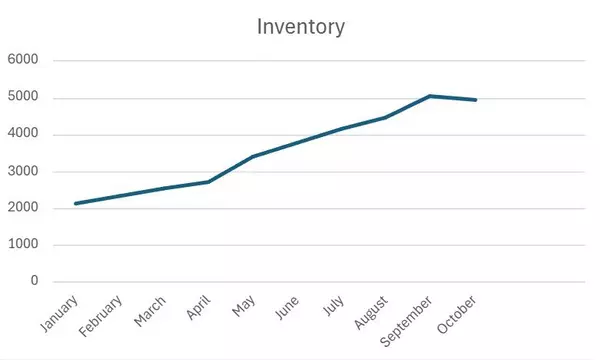
Preparing Your Calgary Home for Winter Wind and Snow
Preparing your Calgary home for the winter means getting ready for harsh winds, heavy snow, and icy conditions. To help protect your home, especially your roof, driveways, and gutters, and to avoid costly repairs, here are some essential tips: 1. Prevent Ice Dams on Your Roof Ice dams form when heat from your home melts snow on the roof, and the water refreezes at the eaves, causing backups that can lead to leaks. To prevent this: Clear your gutters before the first snowfall to ensure proper drainage. Insulate your attic to minimize heat loss, which can cause uneven snow melting. Consider using de-icing cables in problem areas to melt ice and snow safely. After heavy snow, use a roof rake to safely remove excess snow, which reduces the chances of ice dams forming. 2. Manage Snow Accumulation on Driveways Heavy snow can turn your driveway into an ice rink if not properly maintained. Shovel or blow snow regularly to prevent large buildups of snow that can freeze. Use eco-friendly ice melts to reduce ice without damaging your driveway or nearby soil. Look for options that are pet-friendly and won’t corrode your driveway surface. Seal any cracks in your driveway before winter sets in, as water can seep in and freeze, causing further damage. 3. Gutter Maintenance Well-maintained gutters prevent water from accumulating and freezing, which can lead to ice dams and roof damage. Clean your gutters of leaves and debris in the fall to ensure proper water flow during the winter months. Consider installing gutter guards to reduce the amount of debris that collects throughout the season. 4. Windproof Your Home Winter winds in Calgary can be strong, and reinforcing your home is key to protecting it. Reinforce windows and doors by applying weatherstripping or caulking around the edges to prevent drafts. This also helps with energy efficiency by keeping the cold air out. If you have a chimney or roof vents, ensure they are properly sealed to avoid wind drafts entering your home. Secure outdoor items, like patio furniture, to prevent damage during wind storms. 5. Preventing Water line freezing As the temperature begins to drop, homeowners need to be vigilant about preventing water damage, a common yet avoidable issue during the colder months. One of the primary concerns is water line freezing. When water in your pipes freezes, it expands and can cause the pipes to burst, leading to significant damage and costly repairs. To prevent this, it's crucial to turn off your outside water tap when the temperature drops below freezing. This simple step can make a huge difference in protecting your home from potential water damage. After turning off the tap, ensure that you drain any remaining water from the pipe by opening the tap and letting it run until it stops. This will help prevent any residual water from freezing inside the pipe. Another often overlooked area is your garden hose. Leaving a hose attached to an outdoor faucet can trap water in the faucet and connected pipes, increasing the risk of freezing and bursting. Before winter sets in, disconnect your garden hose, drain it completely, and store it indoors. It’s also a good idea to invest in a frost-free faucet or an insulated cover for additional protection. 6. Protect Your Home from Heavy Snow and Structural Damage Excessive snow accumulation can cause structural damage to your roof. Use a snow rake to keep your roof clear, particularly in areas prone to large snow buildups. If needed, hire professionals to inspect your roof structure for potential weaknesses. Investing in proper roof maintenance can save you significant repair costs down the road. By following these steps, you can ensure that your home is well-prepared for Calgary’s winter, keeping it safe from the elements and maintaining its curb appeal throughout the season. For questions about buying or selling real estate, contact Ed Black today at (403) 830-8510. Ed BlackREALTOR® Copyright © 2024 All Rights Reserved.

CREB Housing Statistics, January - October 2024
As we get close to wrapping up the end of the year, I find it interesting to look back at the housing statistics for the year so far and I figure you might be interested in seeing it as well. Here are some take-aways from the data below: From January 2024 to October 2024, there have been 23,903 homes sold and 33,733 homes listed. The average monthly inventory available over these 10 months was 3561, with the average days on the market being 24.8. Month Benchmark Price Sales New Listings Inventory Months of Supply Days on Market January $572,300 1650 2137 2150 1.3 34 February $585,000 2135 2711 2355 1.1 24 March $597,600 2664 3172 2532 0.95 20 April $603,700 2881 3491 2711 0.94 20 May $605,300 3092 4333 3402 1.1 19 June $608,000 2738 3798 3787 1.38 20 July $606,700 2380 3604 4158 1.75 24 August $601,800 2186 3536 4487 2.05 27 September $596,000 2003 3687 5064 2.53 28 October $592,500 2174 3264 4966 2.28 32 November n/a n/a n/a n/a n/a n/a December n/a n/a n/a n/a n/a n/a Source: https://www.creb.com/News/CREBNow/ For those visual learners out there, here are some graphs to look at: In January 2025, I will revisit this post and update it with the rest of the data from the year for those who find this information as fascinating as I do. For questions about buying or selling real estate, contact Ed Black today at (403) 830-8510. Ed BlackREALTOR® Copyright © 2024 All Rights Reserved.

What the US Elections Could Mean for the Canadian Real Estate Market
With Donald Trump’s recent win in the 2024 U.S. election, Canadians may see ripple effects from his proposed economic policies, particularly his commitment to protectionist trade measures. As Canada’s largest trading partner, U.S. policy shifts can have far-reaching implications, and Trump's intentions to impose tariffs on imports could bring substantial changes. The Canadian housing market, closely tied to the economy’s overall health, could feel the impact through rising construction costs, shifts in foreign investment, and changes in consumer confidence. Trump’s stance on protectionism means tariffs may increase the cost of Canadian exports to the U.S., potentially reducing demand and lowering profitability for Canadian businesses reliant on American buyers. Additionally, his intent to revisit the Canada-U.S.-Mexico Agreement (CUSMA) raises uncertainties about future trade stability. For industries like construction, which heavily depend on affordable raw materials like steel and aluminum, these tariffs could increase costs, leading to pricier housing developments and potentially reducing housing affordability. For developers, higher construction costs may translate to slower project timelines or even reduced housing stock in high-demand urban areas. For Calgary and other major Canadian cities which are already facing affordability issues, these cost pressures could make homeownership more challenging for first-time buyers and renters alike. Rising costs for building materials could also affect housing in rural or suburban areas, adding additional obstacles to expanding Canada’s overall housing supply. The effects of U.S. trade policy shifts on the Canadian housing market may vary across regions. Provinces like Alberta and Saskatchewan, which are particularly reliant on oil exports to the U.S., could feel the brunt of reduced demand if trade tensions escalate. Decreased U.S. demand could lead to lower oil prices, reducing revenue for oil-dependent provinces and potentially leading to job losses. This economic slowdown could then impact housing demand as fewer people are willing or able to make significant financial commitments. Economic uncertainty from potential trade disruptions may also impact Canadian consumer confidence. As Canadians weigh the possible effects of Trump’s policies, they may hesitate on making significant purchases, such as buying a home. This is especially true if wage growth slows or job insecurity rises, leading to a cooling demand for real estate. In high-demand markets, a reduction in buyer interest could ease the rapid price growth seen in recent years, potentially stabilizing housing prices. While the full impact of Trump’s policies on the Canadian housing market remains uncertain, the potential for increased tariffs, rising construction costs, and fluctuating consumer confidence may introduce volatility. The Canadian housing market’s health depends on many factors and keeping an eye on U.S. trade policies will be critical as Canada navigates these challenges. For questions about buying or selling real estate, contact Ed Black today at (403) 830-8510. Ed BlackREALTOR® Copyright © 2024 All Rights Reserved.
Categories
Recent Posts










UNANSWERED QUESTIONS?
